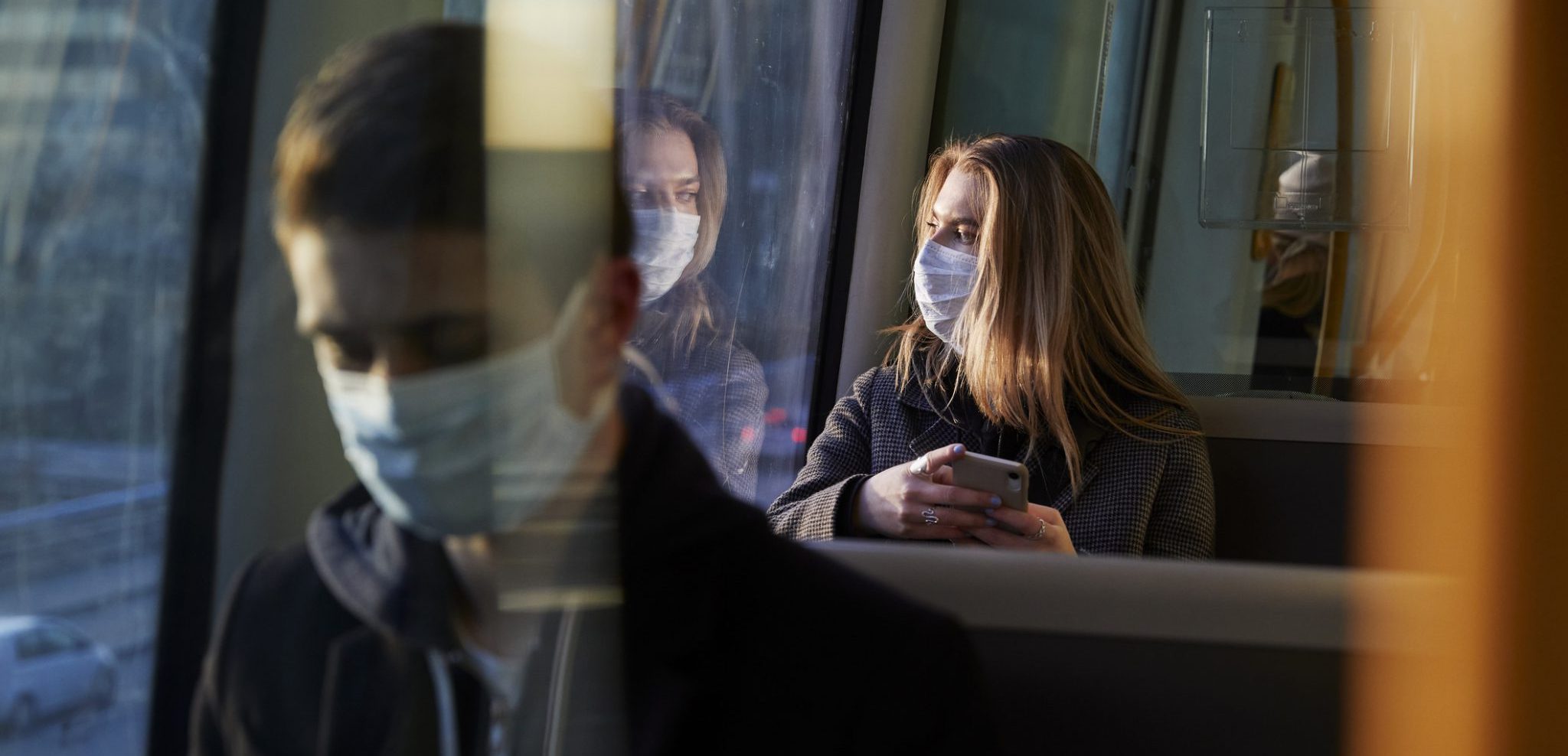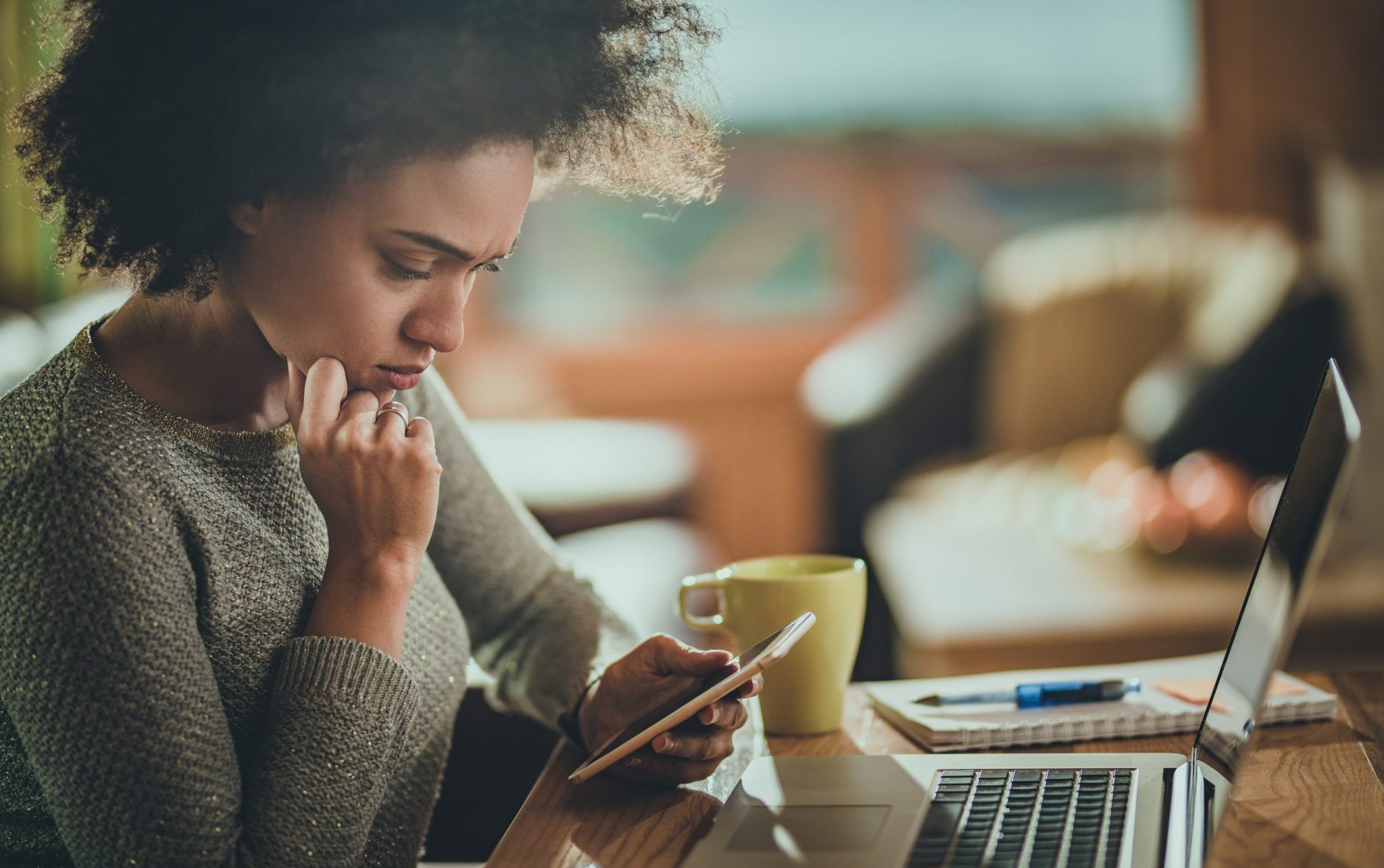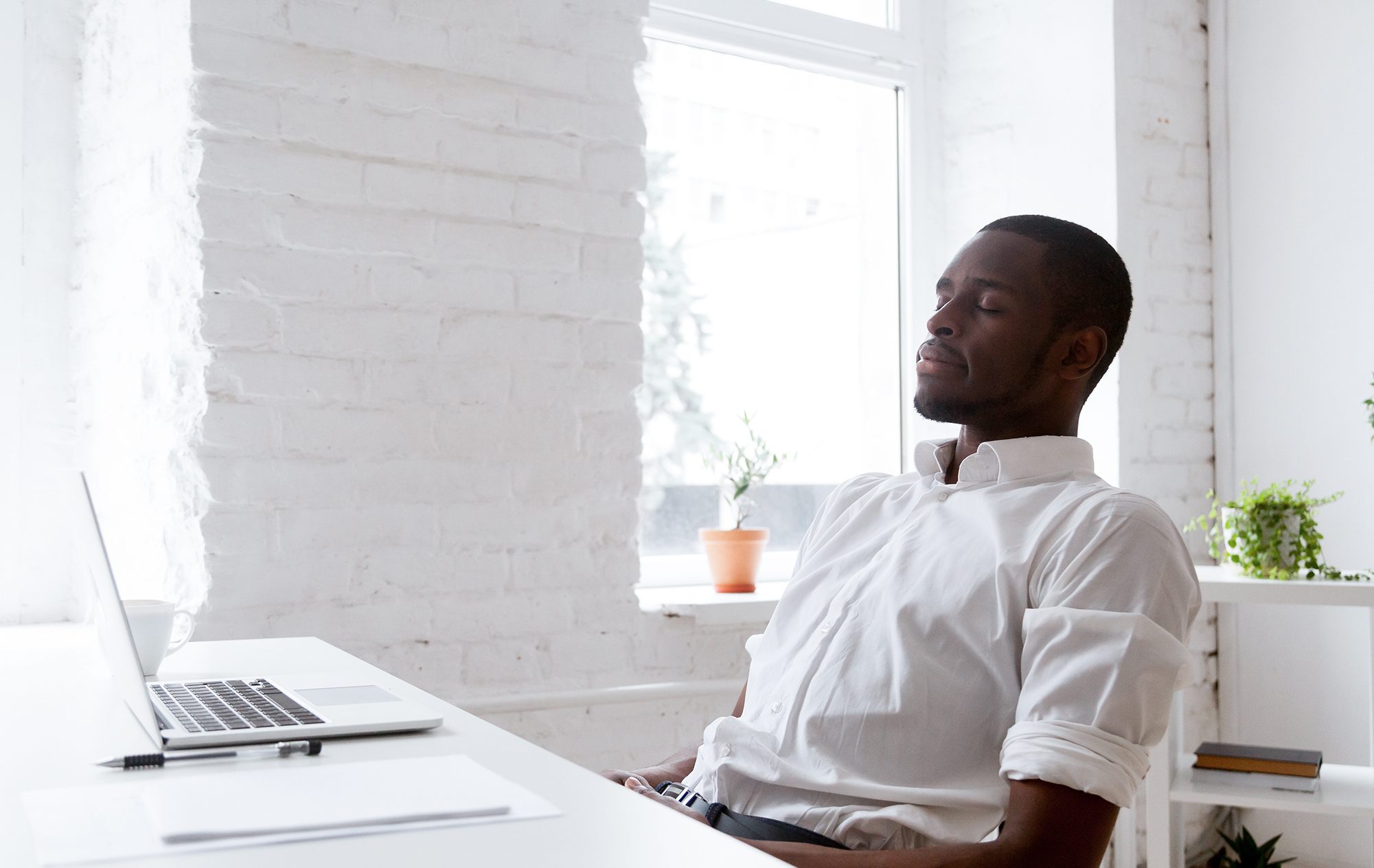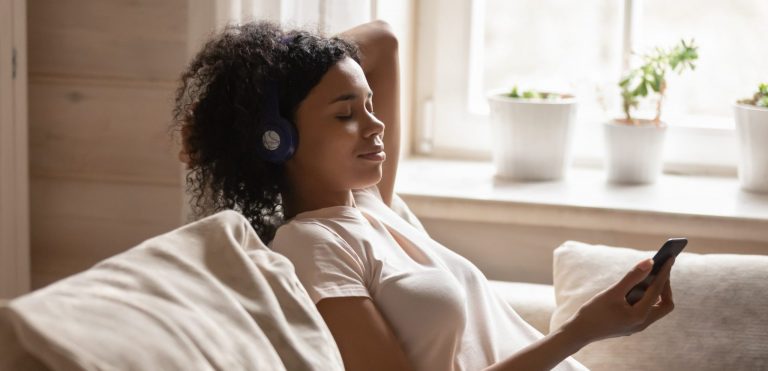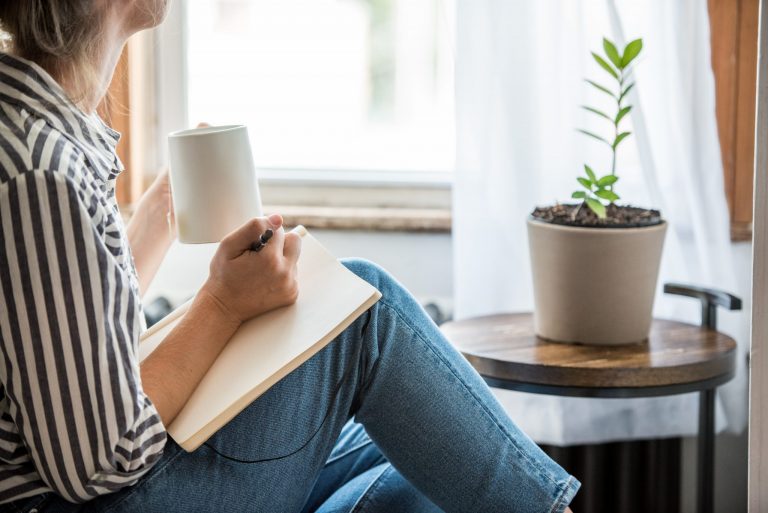The coronavirus crisis has been tough on everyone. Our lives have turned upside down, and this has had long-lasting repercussions on our psychological health. And not only for those with pre-existing conditions.
But what if you are one of 46.7 million Americans or 792 million people worldwide suffering from a mental health issue, such as OCD?
Perhaps you're finding these times additionally challenging. Reduced access to services, uncertainty, and fear are all aggravating factors in mental health management. During coronavirus, these are having a devastating effect on the world's population. However, that doesn't mean that there isn't anything you can do about it. While the situation is rapidly changing, and there is a lot of uncertainty, there are some steps you can take to manage your anxiety and cope better with your OCD.
Joining us today is Eric Patterson from Choosing Therapy. Eric is a licensed professional counselor from Western Pennsylvania with more than 15 years of experience working with treating children, adolescents, and adults a variety of mental health conditions.
Below we'll unwrap what OCD is, how the COVID-19 crisis can exacerbate symptoms, and what you can do right now to help.
What is OCD, and how to know if you have it?
Perhaps you’ve noticed that you are more preoccupied than usual with hygiene? Or are you continually washing your hands? Or, maybe, even worrying if that perhaps who sneezed next to you hours ago had COVID?
Well, these all might be legitimate concerns. But, if you find your thoughts fixated on them or you find yourself introducing new excessive rituals into your life, you might just have OCD.
OCD or Obsessive Compulsive Disorder affects 1.2% of the adult population in the US today. To put this in perspective, this is around 2.5 million people. It is an anxiety disorder that is made up of two components:
Obsessions
These are thoughts, images, or mental pictures that appear in your mind. They can fill you with fear, worry, doubt, or even disgust. And this can make you uncomfortable and anxious. For example, these can include:
- Fear of causing harm to yourself or others
- Intrusive thoughts, such as those of violence against yourself or others
- Religious themed thoughts, including sexual fascinations or sinning
- Relationship focused intrusions, such as not thinking you’re good enough
- Fear of contamination, including physical germs and infections or harmful thoughts. This is particularly relevant during the coronavirus crisis
Compulsions
Compulsions are actions that you feel need to be taken to help you deal with the anxiety caused by obsessive thoughts. You may feel you have to do these things until the ‘danger’ has passed or prevents something bad from happening. These can include:
- Physical actions, such as washing your hands three times, touching items in a specific order, checking a door is locks
- Mental rituals, such as correcting thoughts, for example, counting to a certain number or repeating a particular word
When does a compulsion or obsession become a problem?
Washed your hands? Great. Checked the door is locked before heading to bed? Perfect. Turned off the oven? Well done, you! You are a responsible adult.
It’s true. All these things are good in moderation, but if you find yourself obsessing over them or having to check, again and again, that could be an indicator of a problem.
So how can you tell it’s OCD and not just being careful? The truth is, it’s likely you’ll ‘feel’ something is wrong with your thoughts or behavior. In this case, it’s best to seek help as early as possible. However, if you’re still questioning, here are some OCD warning signs to look out for:
It affects your day-to-day life
Your thoughts and obsessions change how you live, making you uncomfortable or unable to function. Perhaps, you find yourself running to the bathroom to wash your hands on the hour every hour, disrupting your work schedule. You find yourself unable to shake hands with anyone during a meeting due to a fear of bugs.
When your thoughts cross over from just passing notions into tangible ideas, which impacts your life negatively, this is a time for concern.
It makes you feel isolated from others
Do you feel you can’t tell anyone? That they won’t understand you? That your behavior is ‘strange’? Well, this is a warning sign that something isn’t right. It can also make you feel exceptionally lonely and that no one will understand you.
In addition, you may also struggle with relationships. Perhaps you’re hiding your symptoms or fear persecution. Both of these things are cause for concern.
You feel anxious
One of the biggest warning signs comes from within. If you have that anxious feeling – heart racing, mind filled with troubling thoughts, discomfort – more than you’d like, this is a good indicator that you need to see assistance.
Why is managing OCD during the COVID-19 pandemic so difficult?
Amid the coronavirus crisis, you may find your current OCD symptoms increasing or more challenging to manage. Alternatively, if you didn’t have OCD before, you may have noticed signs appearing. Both require attention. Don’t be afraid to seek help. But why is this happening now? Isn’t living with the coronavirus reality enough?
Once upon a time, the home was a haven. During COVID-19, it became a sanctuary from the disease. But one person’s sanctuary is another’s prison. While we were indeed safe at home, there is no getting away from the fact that freedoms were curtailed, albeit for our health. In return, this had some negative outcomes as well, as Eric from Choosing Therapy explains below:
"I think there are two significant lockdown challenges for people with OCD. The first is that their baseline anxiety is going to be raised based on the seriousness of the pandemic. This increase might have the person more willing to believe that their obsessions are correct and less willing to follow through on helpful therapy skills.
The second challenge is that many people will be stuck in a situation with their triggers. For many, their home triggers OCD symptoms, so being inside with less accessibility to healthy coping skills outside makes symptoms grow.”
In short, having OCD during a lockdown is doubly challenging as:
- Symptoms may be more intense. Due to hygiene concerns and the requirement to include new rituals, those with OCD may be drawn into new compulsive behaviors. This can increase anxiety and lead to an exacerbation.
- Can trigger events. Even if a person hasn’t had OCD before or had it under control, the uncertainty caused by COVID-19 can lead to the development of the condition or issue in disease control. Essentially coronavirus anxiety can transfer, and obsessive thoughts can form.
- Legitimizes behaviors. During COVID-19, we have all been encouraged to undertake more stringent hygiene procedures. For someone dealing with OCD alongside that, it can give a false impression that compulsive hygiene behaviors are the norm, leading to a flare-up in symptoms, such as unhealthy behaviors.
- Access to therapy and treatment. COVID-19, by and large, reduced face to face contact. Although technology has gone some way to solving this, some people feel more comfortable in face-to-face therapy. In addition, staffing shortages and redeployments have led to challenges for the healthcare sector in general, which has had a knock-on effect on patients.
What can you do to manage during this time?
You are not alone. Feeling isolated or ashamed is one of the biggest challenges when trying to cope with a mental illness. Try to remember that as we work through some of the best coping strategies for dealing with OCD during lockdown.
1. Understand that everyone is different
Here’s the funny thing about lockdown. Some love it because it allows them to get away from it all and remain safe in their little nest. Conversely, others hate it. Anxiety increases, and so does the compulsion to clean and keep everything spotless.
Both are natural reactions. No two people will react the same, and so too will no two people with OCD. Although your experience will be similar to someone else’s, your OCD journey is your own.
2. Accept that compulsion isn’t helpful
Yes, hygiene is good, but compulsive behavior isn’t. Eric from Choosing Therapy elaborates:
“With OCD, the person must realize that repeating the compulsion has no positive long-term impact. It only restarts the obsessive-compulsive cycle. The best way to manage these compulsive behaviors is to overwhelm the system with available healthy coping skills. Constantly looking for new or refined ways to shrink the anxiety will keep the obsessions and compulsions low. Options vary greatly between people but may include practicing new meditation skills, using available relaxation apps, increasing physical activity (to a reasonable level), exploring new hobbies like cooking, and reaching out to friends and loved ones.”
3. Take time for self-care
We all struggle from time to time, and if you have a mental health disorder getting the self-care you need can be extra challenging. You may be asking yourself, how do I draw the line between self-care and obsession. It’s true, this is difficult (we’ve unpacked the difference in this article here), it boils down this: relationships (are there issues?), responsibility (are you letting yours slide?), reality (treating yourself too often or just because?).
As long as you keep your feet on the ground, a little self-care is a good thing and especially right now. In addition to the usual techniques, such as relaxation, visualization, and meditation, that will help you relax your mind and body. There are two top tips for adapting self-care to the coronavirus world:
- Limit exposure to media sources. This will lower your anxiety level and keep you focused on the positive elements of life. Overexposure to information can leave you feeling confused and overwhelmed. Especially when there is little you can do in a situation. Too much media can be disempowering and anxiety-producing.
- Follow recommendations. They are there for a reason. You can be cautious, but being overtly so can also be damaging to your health. So, if advice says to wash your hands with sanitizer, you don’t need to do it three times. Once is enough.
4. Explore new outlets
While in lockdown it can be tempting to immerse yourself in tried and tested habits and behaviors, once the crisis ends (and it will), it will be so much harder to detach yourself from these behaviors.
Instead, now might be the perfect time to form new and healthy habits and hobbies. For example, you may start to create new healthy structures to your day that keep you healthy but avoid over engagement in unhealthy behaviors such as excessive hand washing. Teach yourself how to do it in moderation by washing your hands just once, not three times.
You may also take up a new hobby, such as meditation, to manage your stress and anxiety more effectively. Learn how to calm your mind and body when you feel anxiety creeping up on you.
5. Seek professional help
If you have found that your OCD is getting worse or these are entirely new symptoms for you, don’t be afraid to seek help. While it’s true many countries are shifting the focus of their frontline staff, mental health can be a medical emergency, and you should seek treatment. Here’s what to expect:
“Hands down, the gold standard treatment for OCD is called exposure with response prevention (ERP). What ERP boils down to is the person being exposed to their obsessions and anxious thoughts, using relaxation techniques to manage symptoms, and avoiding the compulsion. By breaking the link between the obsessive thought and compulsive behavior, the mind disconnects the two, which permits the person to respond more typically to stressors.
People with OCD spend so much time avoiding obsessions, but the anxiety cannot hurt them as much as the compulsions do. Lockdown provides a unique opportunity for people to expose themselves to their stress, confront the fear, and engage in healthy coping skills while watching the anxiety fade away. These techniques are possible to explore at home, but they will be safer and more effective under the guidance of a mental health professional." (Eric Patterson, Choosing Therapy)
Life after lockdown?
The journey through 2020 hasn’t been easy for anyone and not least if you have OCD. While there are some signs of lockdown easing, and life returning to somewhat normal, that may only add more anxiety to the pot.
You may be experiencing concerns about the virus spreading or how you will keep yourself safe. This is only natural. Anxiety about post lockdown life can be just as troubling as how to live with lockdown itself.
Don’t bottle your thoughts up. Instead, seek help, undertake self-care, and focus on keeping yourself healthy. Try to avoid falling into the trap of worry and concern. Instead, center your mind on reality and stay calm. One day soon, COVID will be a distant memory.

